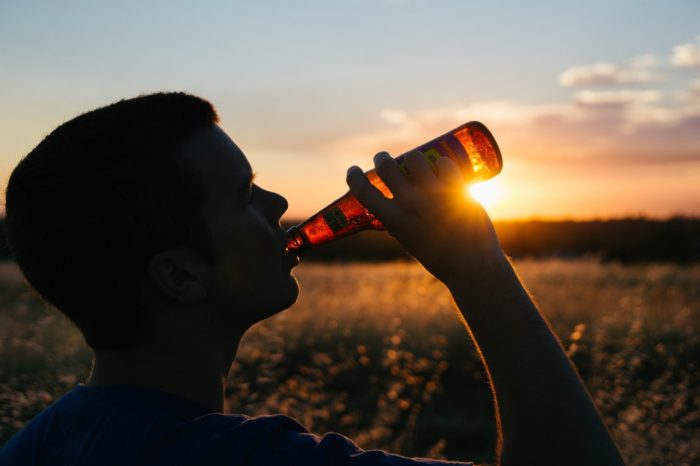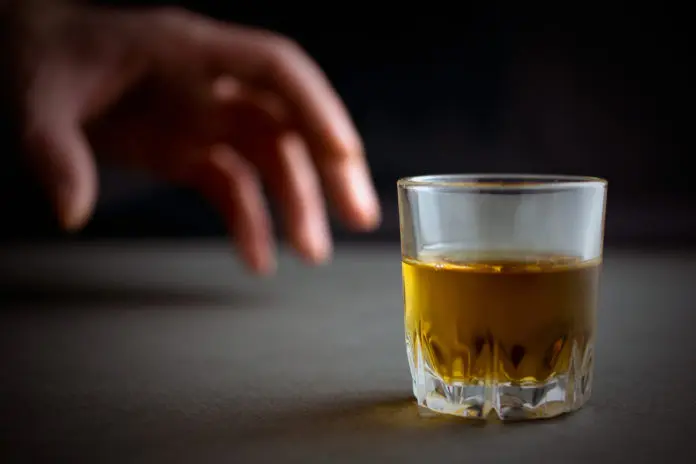We already discussed how smoking affects the freediver’s body, but what about drinking alcoholic beverages? Freediving is a sport that encourages us to exercise, maintain a healthy diet, and to possess strength and flexibility, all to keep us safe in the water and to inspire progress. But freedivers are humans; we drink alcohol when we are sad, when we are happy, when we are celebrating a new achievement, etc. If a freediver consumes alcohol the night before training or directly after, how does it affect them?
Dehydration
Our muscles need vitamins and minerals that come from being well-hydrated. With freediving, due to sweating from spending so much time in the sun and immersion diuresis (the need to pee), we lose a lot of water that contains vitamins and minerals during our training sessions. Consuming alcoholic beverages that contain 4% or more alcohol content can increase the amount of urine we produce, which can lead to an electrolyte imbalance. It can also increase sweat production as our body temperature rises, thereby depleting these nutrients and putting us in a dehydrated state. This can make freedivers more susceptible to heatstroke, fatigue, headaches, and decreased strength and performance if consumed the night before a training session.
Muscles and Lactic Acid
Drinking alcohol before training impairs our body’s ability to produce ATP (adenosine triphosphate), which is the main energy source for our muscles. A lack of sleep stemming from drinking can also create a scarcity of HGH (human growth hormone), which is what builds our muscles. Alcohol also causes the liver to release a substance that compromises testosterone, which is important for muscle recovery and development. Since your liver is under more stress while trying to flush the alcohol out of your system, your body will not be able to eliminate the lactic acid it produces while training like it normally would, which can cause you to tire quicker; this can cause the heavy-legs or -arms feeling to happen sooner than usual and stay around longer.
Cognitive and Motor Function
Being aware of our bodies during a dive is essential in order to concentrate on equalization issues, relaxation problems, or poor technique. Unfortunately, alcohol can result in delayed reaction times, poor hand-eye coordination, diminished judgement, and the inability to learn and remember new information. This can pose a serious risk for a freediver on their own dive or for a freediver who is acting as safety, where snap decisions may become necessary.
Sleep Deprivation
Alcohol may make you fall asleep faster, but it disrupts your restorative sleep cycle (REM sleep) during the night, which leads to a reduced quality of sleep. Even if you sleep at a proper time and get a full night’s worth, the overall value of the sleep is still affected, which can inhibit your mental and physical performance. This influences recovery, performance, and energy levels, which are all essential to effective freediving training.
Energy Depletion
When alcohol is being metabolized, the liver produces less glucose, which leads to lower blood sugar levels. We need high levels of blood sugar in order to produce enough energy to compensate for our activity. Athletic performance is impacted since our body prefers to metabolize alcohol first, which modifies the metabolism of carbohydrates and lipids, our body’s preferred energy source for endurance exercises. This will make us feel slower and have less energy, and also impact our coordination, concentration, and reactions.
Drinking After a Dive
Plenty of freedivers like to enjoy a beer after a good session, especially after reaching a new personal best. But is this good for our bodies? Studies show that the most critical time for recovery after exercising is within one hour, minimum. Six hours is better, since alcohol can impact the rate of protein synthesis, which is the muscle growth and repair process. Of course, the longer you wait before drinking, the better. Just make sure to drink plenty of fluids before popping open a beer bottle, and try to stick to only one drink; your main focus after diving should be to replenish the electrolytes and rehydrate, since freedivers lose a lot of water during training sessions (even better, take water with you on the buoy). Make sure to have a meal with a good amount of carbohydrates before having your alcoholic drink, as it will help replenish muscle fuel stores. Beers with a lower alcohol percentage (less than 5%) will make a difference regarding dehydration effects, so choose your celebration beer wisely.
Final Thoughts

We are all humans, whether we are freediving athletes, students, instructors, or just occasionally training. Depending on the culture we come from, alcohol can be an important part of our lives. If you are not a top freediving athlete, chances are higher that you enjoy a social event with alcoholic beverages. If you plan on training the next day, really consider if it will be worth it to drink the night before, or train the next day. If training sessions are few and far between, it may be wiser to focus on having the most effective training sessions possible, in which case alcohol will not help. In the end, it is your body and your choice, just make sure to think of your buddy’s safety as well as your own when you are making these decisions.

